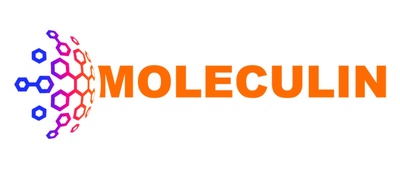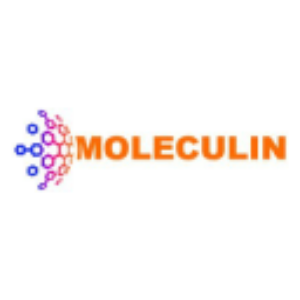Moleculin Receives Allowance to Proceed with Phase 1/2 Study of Annamycin in Combination with Cytarabine for the Treatment of Acute Myeloid Leukemia (AML)
Moleculin Biotech has received approval for its Phase 1/2 clinical trial of Annamycin combined with Cytarabine for treating acute myeloid leukemia (AML) in Poland. This follows promising preclinical data showing a 68% increase in overall survival (OS) with the combination treatment compared to Annamycin alone, and a 241% increase compared to Cytarabine alone. The trial is expected to start this quarter, with plans to expand to other European countries. Annamycin has demonstrated no cardiotoxicity and aims to overcome multidrug resistance seen in current treatments.
- Approval received for Phase 1/2 trial of Annamycin and Cytarabine in AML.
- 68% increase in overall survival with combination treatment compared to Annamycin alone.
- 241% increase in overall survival compared to Cytarabine alone.
- No cardiotoxicity observed in clinical trials.
- Potential delays in patient recruitment for the trial.
- Forward-looking statements involve risks and uncertainties related to trial commencement and expansion.
– Preliminary positive safety and efficacy data from second Phase 1 AML study validate advancement to Phase 1/2 of Annamycin in combination with Cytarabine
– Preclinical animal research demonstrated a
– Trial expected to commence this quarter
HOUSTON, May 5, 2022 /PRNewswire/ -- Moleculin Biotech, Inc., (Nasdaq: MBRX) ("Moleculin" or the "Company"), a clinical stage pharmaceutical company with a broad portfolio of drug candidates targeting highly resistant tumors and viruses, today announced that it has received allowance from the Polish Department of Registration of Medicinal Products (URPL), as well as the requisite Ethics Committee approval, to proceed with its Phase 1/2 clinical trial in Poland of Annamycin (L-ANN) in combination with Cytarabine (Ara-C) in the treatment of subjects with acute myeloid leukemia (AML) who are refractory to or relapsed after induction therapy.
The Phase 1/2 L-ANN /ARA-C combination (AnnAraC) trial (MB-106), an open label trial, builds on the safety and dosage data from the two successfully concluded single agent Annamycin AML Phase 1 trials (MB-104 and MB-105) in the U.S. and Europe and the preclinical data discussed below. The study is expected to commence patient enrollment in the first half of 2022.
Walter Klemp, Chairman and Chief Executive Officer of Moleculin commented, "We are pleased with the positive feedback from the URPL and are excited to take another step toward initiating this important trial. Bolstered by the encouraging data seen to-date, we believe the combination of Annamycin with Cytarabine has the ability to synergistically improve activity against AML. With this allowance to proceed now in hand, our team is working to get this trial up and running as quickly and efficiently as possible. Based on the continued support received from local physicians in Poland for this AnnAraC trial, we believe we will be able to remain on track to get the trial underway this quarter and build momentum with patient recruitment. We are also working to potentially expand this trial to additional countries in Europe to help further accelerate the rate of recruitment."
Importantly, Annamycin has also demonstrated a lack of cardiotoxicity in multiple human clinical trials, including ongoing trials for the treatment of relapsed or refractory AML and soft tissue sarcoma (STS) lung metastases. Annamycin is the Company's next-generation anthracycline that has been shown in animal models to accumulate in the lungs at up to 30-fold the level of doxorubicin, as well as demonstrating the ability to avoid the multidrug resistance mechanisms that typically limit the efficacy of doxorubicin and other currently prescribed anthracyclines. Furthermore, based on additional preclinical animal data from sponsored research, Annamycin in combination with Cytarabine demonstrated a
In January 2022, the Company reported that it had received an updated independent safety review of certain preliminary data for the first 30 patients in its three Phase 1 clinical trials with Annamycin targeting AML (MB-104 and MB-105) and the metastases of soft tissue sarcoma to the lungs (STS Lung) or MB-107, which concluded there was no evidence of cardiotoxicity. Based on the preliminary data seen in the fifth and final dose escalation cohort of the MB-105 trial, the Company reported Annamycin demonstrated an overall response rate (ORR) of
About Annamycin
Annamycin is the Company's next-generation anthracycline that has been shown in animal models to accumulate in the lungs at up to 30-fold the level of doxorubicin. Importantly, Annamycin has also demonstrated a lack of cardiotoxicity in multiple human clinical trials, including ongoing trials for the treatment of relapsed or refractory acute myeloid leukemia (AML) and soft tissue sarcoma (STS) lung metastases, and the Company believes that the use of Annamycin may not face the same usage limitations imposed on doxorubicin, one of the most common currently prescribed anthracyclines. Annamycin is currently in development for the treatment of AML and STS lung metastases and the Company believes it may have the potential to treat a number of additional indications.
Annamycin currently has Fast Track Status and Orphan Drug Designation from the U.S. Food and Drug Administration for the treatment of STS lung metastases, in addition to Orphan Drug Designation for the treatment of relapsed or refractory acute myeloid leukemia. For more information about the Phase 1b/2 study evaluating Annamycin for the treatment of STS lung metastases, please visit clinicaltrials.gov and reference identifier NCT04887298.
About Moleculin Biotech, Inc.
Moleculin Biotech, Inc. is a clinical stage pharmaceutical company focused on the development of a broad portfolio of drug candidates for the treatment of highly resistant tumors and viruses. The Company's lead program, Annamycin is a next-generation anthracycline designed to avoid multidrug resistance mechanisms with little to no cardiotoxicity. Annamycin is currently in development for the treatment of relapsed or refractory acute myeloid leukemia (AML) and soft tissue sarcoma (STS) lung metastases.
Additionally, the Company is developing WP1066, an Immune/Transcription Modulator capable of inhibiting p-STAT3 and other oncogenic transcription factors while also stimulating a natural immune response, targeting brain tumors, pancreatic and other cancers, and WP1220, an analog to WP1066, for the topical treatment of cutaneous T-cell lymphoma. Moleculin is also engaged in the development of a portfolio of antimetabolites, including WP1122 for the potential treatment of COVID-19 and other viruses, as well as cancer indications including brain tumors, pancreatic and other cancers.
For more information about the Company, please visit www.moleculin.com and connect on Twitter, LinkedIn and Facebook.
Forward-Looking Statements
Some of the statements in this release are forward-looking statements within the meaning of Section 27A of the Securities Act of 1933, Section 21E of the Securities Exchange Act of 1934 and the Private Securities Litigation Reform Act of 1995, which involve risks and uncertainties. Forward-looking statements in this release include, without limitation, Moleculin's ability to commence the clinical trial this quarter, to successfully recruit patients and to potentially expand this trial to additional countries in Europe. Although Moleculin believes that the expectations reflected in such forward-looking statements are reasonable as of the date made, expectations may prove to have been materially different from the results expressed or implied by such forward-looking statements. Moleculin has attempted to identify forward-looking statements by terminology including ''believes,'' ''estimates,'' ''anticipates,'' ''expects,'' ''plans,'' ''projects,'' ''intends,'' ''potential,'' ''may,'' ''could,'' ''might,'' ''will,'' ''should,'' ''approximately'' or other words that convey uncertainty of future events or outcomes to identify these forward-looking statements. These statements are only predictions and involve known and unknown risks, uncertainties, and other factors, including those discussed under Item 1A. "Risk Factors" in our most recently filed Form 10-K filed with the Securities and Exchange Commission ("SEC") and updated from time to time in our Form 10-Q filings and in our other public filings with the SEC. Any forward-looking statements contained in this release speak only as of its date. We undertake no obligation to update any forward-looking statements contained in this release to reflect events or circumstances occurring after its date or to reflect the occurrence of unanticipated events.
1 Zal T, Zielinski R, Grela K, Cardenas-Zuniga R, Skora S, Fokt I, Zal A, Andreeff M, Gil L Shephard R, Priebe W, High Efficacy of Liposomal Annamycin (L-ANN) in Combination with Cytarabine in Syngeneic p53-Null AML Mouse Model, Blood (2020) 136 (Supplement 1): 6-7. https://doi.org/10.1182/blood-2020-143344
Investor Contact:
JTC Team, LLC
Jenene Thomas
(833) 475-8247
MBRX@jtcir.com
![]() View original content to download multimedia:https://www.prnewswire.com/news-releases/moleculin-receives-allowance-to-proceed-with-phase-12-study-of-annamycin-in-combination-with-cytarabine-for-the-treatment-of-acute-myeloid-leukemia-aml-301540580.html
View original content to download multimedia:https://www.prnewswire.com/news-releases/moleculin-receives-allowance-to-proceed-with-phase-12-study-of-annamycin-in-combination-with-cytarabine-for-the-treatment-of-acute-myeloid-leukemia-aml-301540580.html
SOURCE Moleculin Biotech, Inc.
FAQ
What is the purpose of the MBRX Annamycin trial?
What were the results of preclinical studies for Annamycin?
When is the Annamycin trial expected to start?








